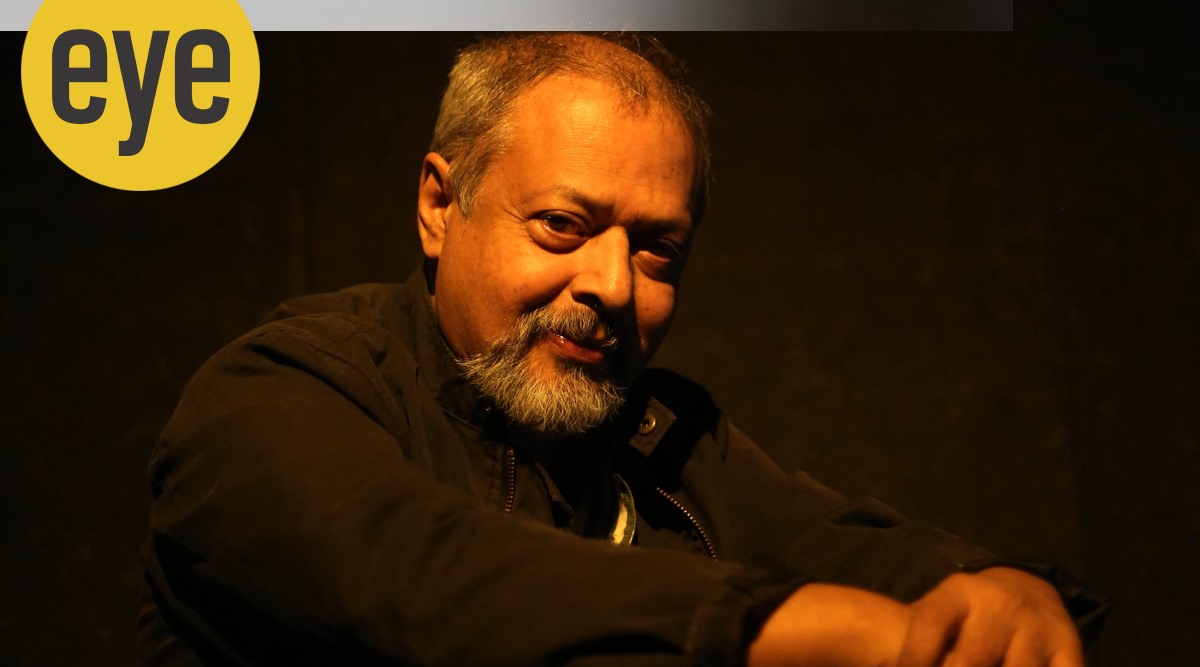 Theatre director Sunil Shanbag (Express Archive)
Theatre director Sunil Shanbag (Express Archive) During the pandemic, as several members of the theatre community came together to help artistes in distress, Mumbai-based theatre director Sunil Shanbag encountered an elderly loknatya performer whose deep sense of self-respect was preventing him from taking help.
“Don’t give me charity, give me a job,” he said. The performer had a chronic medical problem for which he had to take medication every day. When he realised that his son had lost his job during the pandemic, he began to look at his medicines as a luxury. He stopped taking the pills and, within a week, his health started to fail.
“What kind of a job can you give a 75-year-old who is ill and all theatres have shut down? These were some of the difficult moments during the pandemic,” says Shanbag, who was a part of TheatreDost, an initiative that supported 600 families over six months.
Two years after the first lockdown in India, World Theatre Day 2022, on March 27, is being marked by artistes who are returning from a devastation. Theatres are open but the cracks are evident, in the form of fellow artistes who died or left the scene, financial difficulties and a shaky infrastructure. Shanbag is among the veterans of the art form who are now helping rebuild the stage. Excerpts:
For the last two years, World Theatre Day has been marked by anxiety and uncertainty. Are you in a more hopeful mood this year?
I am an optimist so I don’t have to make the extra effort and I feel a great sense of pride in the creative community, across art forms. People have shown resilience and the ability to fight and bounce back. For instance, Mumbai’s set workers and technicians are a part of a small union and it became easy to work through them to contact those who needed support. The pandemic told us that unless we have representation and support systems, the future will be difficult.
Do you see a return to the normal now that theatres are open?
There is a fair amount of activity since the government allowed auditoriums to operate at 100 per cent occupancy. Many of the bigger theatre companies are now slowly coming back. It has created confidence. But two years is a long time for a system that is mostly entrepreneurial and not supported by the state or otherwise, where the economics is quite poor, and which is dependent a lot on daily-wage workers. In Maharashtra, the lavani and tamasha artistes have suffered hugely. The biggest impact was on the daily wage workers — the technicians, set boys, booking clerks, managers, ushers and others.
 A file photo of one of Shanbag’s directed plays, Deewar, staged in Mumbai (Express Archive)
A file photo of one of Shanbag’s directed plays, Deewar, staged in Mumbai (Express Archive) Will these experiences result in theatre now telling new kinds of stories?
Theatre does not react instantly. There is a lot of self-reflection but it will take time for new work that deals with the experience of the last two years. Many actors haven’t come back to the city from their villages and towns. Films and television supported a lot of actors during the lockdowns, but they block actors contractually for long periods of time making it hard for them to commit to live performances. Theatre in Mumbai has always depended on the balance between film and TV work, and theatre. That balance has been upset. Those theatre people who moved to doing other work will find it hard to justify a return to the uncertainties of theatre. Many took up alternative work like running taxis, food services, selling spices, and so on.
What about new performers?
In the absence of accessible formal training, most theatre people learn by doing. Even actors, who have trained formally in an institution, often find that they have to unlearn and relearn in regular productions. For most of two years, where were the productions for them to perform in?
Why aren’t you creating a new play?
In our view of theatre, creating a play is not the only way to be in theatre. There are multiple projects happening that are focussed on the ecosystem. We are developing a residency in Kashid, on the coast south of Mumbai, which we hope will nurture new work. I am also working with a new university which is starting a visual arts major, to help develop the course and design a black box space. But, yes, in the middle of all this, I am hoping a new play will come.
- The Indian Express website has been rated GREEN for its credibility and trustworthiness by Newsguard, a global service that rates news sources for their journalistic standards.

